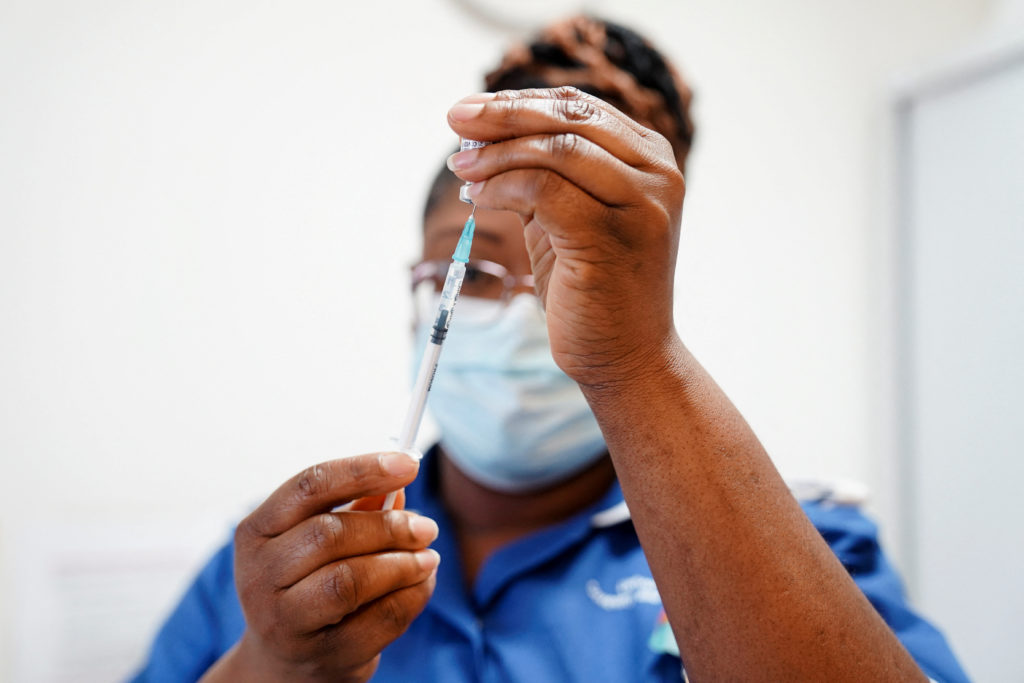
As COVID cases rise across the U.S., people ages 6 months or older will now have access to an updated COVID vaccine to protect them against severe illness and death. The shots are expected to be available as soon as this week, according to the Centers for Disease Control and Prevention.
The updated vaccine is designed to better protect against current variants. It was officially recommended Sept. 12 by both the CDC’s Advisory Committee on Immunization Practices and CDC Director Mandy Cohen. The Food and Drug Administration also endorsed the updated shot this week.
The PBS NewsHour spoke with Dr. Payal Patel, an infectious disease physician at Intermountain Health in Utah, about what to know about the latest vaccine.
Watch the conversation in the player above.
To find where you can schedule an appointment for the updated COVID vaccine, go to vaccines.gov.
Who should get an updated COVID vaccine?
This latest COVID vaccine is recommended for virtually everyone, much like the flu shot, Patel said. It was approved for anyone 6 months and older. Since the first COVID vaccines were administered three years ago, researchers have gathered data to show the COVID vaccines are widely safe to use, boosting efforts to create more equitable vaccine distribution and widespread protection, she said. Vaccines offer broad protection only if people get them.
WATCH: New long COVID guidance aims to help doctors identify mental health symptoms
“The aim of these vaccines are to prevent hospitalization and try to keep you out of the hospital and to decrease death associated with COVID,” Patel said.
Should I get the latest vaccine even if I recently had COVID?
The CDC said if someone recently tested positive for COVID, they may choose to get the latest COVID vaccine three months after the infection. According to the CDC, you “may consider delaying your next vaccine dose by three months” from when symptoms began, or from when you received your first positive COVID test.
How quickly will protection kick in?
It can take your immune system roughly two weeks to ramp up defense against COVID after receiving this updated vaccine, Patel said. Her advice is not to wait — get the shot now. The protection is durable and will help as you prepare for upcoming holiday travel and spending more time indoors in the colder months ahead, Patel said. “Once it’s there, it does last a while. So I think that would probably be my advice rather than waiting it out now that they’re available again.”
Can I get the COVID vaccine alongside flu and RSV shots?
Research supports getting the flu and COVID vaccines at the same time – it’s safe and simultaneously builds immune response against both respiratory illnesses. And if individuals also qualify to receive the RSV vaccine – those age 60 or older, some young infants and children, or pregnant people – then they can also receive all three vaccines during the same visit, Patel said. “You might be sore in that arm. You were going to be sore regardless. And you know, you need them around the same time. So I would go ahead [and get them all at once].”
How much will the updated COVID vaccine cost?
This latest COVID vaccine will be commercially available since the federal government will not be covering the cost for everyone to get vaccinated, as it has in the past. But Patel said there are several programs to help people with little to no insurance coverage, including the Vaccines for Children Program and the Bridge Access Program, which will help people get the protection they need against COVID. For people with health insurance, vaccines will be covered with no out-of-pocket cost to them, she said.
ncG1vNJzZmivp6x7sa7SZ6arn1%2Bjsri%2Fx6isq2eYmq6twMdoqqGnpaGxbsXOrmSgnaRiwamxjK6nnZmkmrFur86voJ1lppawpLXNnmShnaKawG7Ax55kpZmkmsC1ecauoJ2ZnpiybrLOq2StoJVis6K4yw%3D%3D